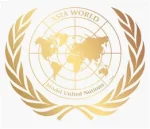
Posting Title: Consultant – Convention on the Rights of Persons with Disabilities (CRPD) Legislative Review – Kiribati
Department/Office: Economic and Social Commission for Asia and the Pacific
Duty Station: BANGKOK
Posting Period: 15 June 2023 – 07 July 2023
Job Opening Number: 23-Economic and Social Commission for Asia and the Pacific-211394-Consultant
United Nations Core Values: Integrity, Professionalism, Respect for Diversity
Result of ServiceUnder the supervision of the ESCAP Subregional Office for the Pacific, and in coordination with the Social Development Division (SDD), the consultant will undertake the following tasks: 1. Prepare and undertake in-country consultations with the Government, Non-Government Organizations (NGO) and Organizations of Persons with Disabilities (OPD); 2. Update, revise and finalize the legislative review report, including a validation workshop of the draft legislative review with the Kiribati National Council for Persons with Disabilities (KNCPWD) and Kiribati National Human Rights Taskforce (KNHRTF) and OPDs; and 3. Prepare and conduct an in-country workshop and training on mainstreaming rights of persons with disabilities in preparation for the development of a standalone disability inclusion Act: (i) Workshop on CRPD; and (ii) Train-the-Trainers (TOT) workshop to strengthen national capacity to promote mainstreaming of disability rights.
Work LocationKiribati
Expected duration4 months. Starting Q3 2023
Duties andResponsibilities
The Convention on the Rights of Persons with Disabilities (CRPD) and its Optional Protocol were adopted in December 2006 and entered into force in May 2008 as the first comprehensive human rights treaty of the 21st century and the first disability-specific international legal instrument that seeks to respect, protect and fulfil the rights of persons with disabilities. The CRPD marks a historic paradigm shift from a traditional welfare and medical understanding of persons with disabilities as objects of charity to a social model of disability that empowers them as rights holders. For the first time, it establishes, in a binding treaty, their right to enjoy all human rights and fundamental freedoms, and to have their inherent dignity respected. To support these efforts, ESCAP has assisted Pacific countries in developing CRPD aligned legislation since 2015. As an implementing partner of the Pacific Enable Project funded by the UN Partnership for the Rights of Persons with Disabilities (UNPRPD), ESCAP had partnered with the Pacific Islands Forum Secretariat (PIFS) to conduct comprehensive reviews and gap analyses of national domestic laws for CRPD compliance. Kiribati is a signatory to the CRPD and has ratified the Convention in September 2013. Kiribati also has commitments under other global and regional frameworks to protect and promote the rights of persons with disabilities, including the Pacific Framework for the Rights of Persons with Disabilities 2016-2025 (PFRPD), the 2030 Sustainable Development Agenda, the SAMOA Pathway, and the Incheon Strategy to “Make the Right Real” for Persons with Disabilities in Asia and the Pacific. Despite lacking the technical assistance by means of legislative reviews or legislative drafting, Kiribati has made efforts to fulfil their obligations to the frameworks and the articles in the CRPD that guide the inclusion of persons with disabilities. In response to the request from the Government of Kiribati, an initial legislative review for compliance with the CRPD (hereinafter “legislative review”) was completed in April 2022. As a follow-up, the Government of Kiribati has requested technical assistance to support the implementation of the recommendation(s) from the initial legislative review: (i) develop a standalone disability inclusion Act; and (ii) mainstreaming of disability rights into existing legislations. In this regard, ESCAP is seeking an experienced legal consultant/analyst with substantial up-to-date knowledge of the CRPD in the context of the Pacific to review the initial legislative review report, together with the new legislations and case law since 2018. The consultant should have a solid understanding of the full range of statements, general comments, concluding observations, recommendations, decisions and jurisprudence of the CRPD Committee that guide the interpretation and implementation of the Convention. A strong background in legislative reviews, law reforms is necessary, and experience in drafting legislation, along with regional expertise are desirable.
Qualifications/special skillsA Bachelor of Laws degree and postgraduate degree in law, humanities or social sciences. Skills: Extensive knowledge of international human rights law and instruments, in particular, the Convention on the Rights of Persons with Disabilities, and experience in reviewing legislation for compliance with international human rights standards, advising law reforms. Experience in drafting legislations is desirable. Academic Qualifications: A Bachelor of Laws degree and postgraduate degree in law, humanities or social sciences. Professional qualifications: Bar admission in a common law jurisdiction, preferably in the Pacific region, is desirable, and a postgraduate qualification (diploma level or higher) in legislative drafting is an advantage. At least seven years’ experience as a practicing lawyer or law academic; or a legal/policy adviser with at least five years’ experience working in the area of disability law and policy and/or other area of international human rights law
LanguagesFluent in English. Strong analytical writing and communication skills
No FeeTHE UNITED NATIONS DOES NOT CHARGE A FEE AT ANY STAGE OF THE RECRUITMENT PROCESS (APPLICATION, INTERVIEW MEETING, PROCESSING, OR TRAINING). THE UNITED NATIONS DOES NOT CONCERN ITSELF WITH INFORMATION ON APPLICANTS’ BANK ACCOUNTS.

